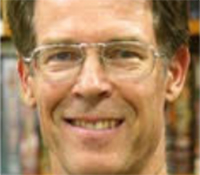Sea Level Rise: How Fiction Might Work with Science of Climate Change |
||
|
||
|
DESCRIPTION/ABSTRACT: This talk by sci-fi bestselling author Kim Stanley Robinson (a UCSD alumnus) is sponsored by the Center for the Humanities, and organized by the Transdisciplinary Ecocriticism Research Group. Robinson is one of the most famous writers ever to graduate from UC San Diego. His climate change trilogy, Forty Signs of Rain (2004), Fifty Degrees Below (2005), and Sixty Days and Counting (2007), is largely set at a carefully described UCSD. His science-fiction novels range from showing a prehistoric cave-painting shaman, to Galileo, to the terraforming of Mars. Robinson has won numerous awards, including the Hugo Award for Best Novel, the Nebula Award for Best Novel, and the World Fantasy Award. His latest novel, Aurora, is about space travel, artificial intelligence, and it questions the feasibility of star travel, and to what extent humanity has any future on other planets. This talk is about the just completed and not-yet-published novel on the drowning of New York City. (Note: On the same day, Robinson will participate in a transatlantic conversation with Usman Haque, in an event organized by the Arthur C. Clarke Center for Human Imagination at UC San Diego and the University College London Bartlett School of Architecture. "Sea Level Rise" will also be the topic, but with a focus on London in 2080. That conversation will take place in the Calit2 Auditorium (Atkinson Hall) from 10:30am to noon, also on May 4. The public and campus communities are invited to attend either or both of these opportunities to hear from Kim Stanley Robinson.) SPEAKER BIO: KIM STANLEY ROBINSON earned his Ph.D. in English from UC San Diego with a dissertation on the work of author Philip K. Dick. Earlier, he received his Master's degree in English from Boston University in 1975. The Illinois-born science fiction author is best known for his Mars trilogy, but other works include The Years of Rice and Salt, Antarctica, and the Three Californias trilogy. The novelist is often labeled as a leading author of literary science fiction. Robinson is also known as a writer of "hard science" fiction, a spiritual descendant of Jules Verne, and a writer most closely aligned with such writers of hard science fiction as Isaac Asimov. While other sci-fi writers invented material for a vision of the future, Robinson is firmly aligned with the work of Verne and Asimov, extrapolating the future based on his knowledge of science and technology. MORE INFORMATION: This lecture is free for admission and open to the public. |

